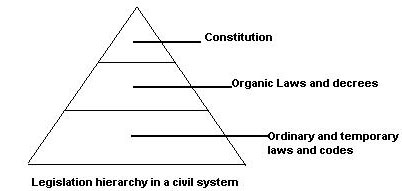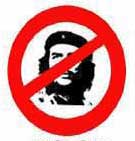Venezuela's Revolutionary Judiciary v Sumate: XXI century political prosecution
London 22.06.05 ¦ Article 72 of Hugo Chavez's custom made constitution reads "All magistrates and other offices filled by popular vote are subject to revocation." With such revolutionary prevision as background let me expand into the most notorious case of political prosecution in today's Venezuela. Since there are no precedents of a systematic attempt at silencing and imprisoning members of a civil group in the country's history one should start by giving a rough chronological account of events. Hugo Chavez won the presidency of Venezuela in 1.998, his little plan to take power by force, via coup d'etat in 1.992, turned out to be unsuccessful so he saw fit to run for office the democratic way. Once in power Chavez started a series of reforms for, in his view, his project of refounding the State could not be accomplished with the old system. By 2.000 all constituted powers of the State were dissolved by way of illegal mechanisms. Utilizing his charisma he duped everyone into this idea of reconstructing it all; none of the institutions from the past survived his reforms. The fundamental pillar of it all was to be the constitution, which as in any civil law system, resides at the top of the legislation edifice [see diagram below]. To justify past misdeeds and anti-democratic actions he ordered his minions at the National Constituent Assembly to include in the new constitution the article aforementioned and also others (333, 347, 348 and 350) with far reaching consequences. As a matter of fact article 350, basically, guarantees, constitutionally, the right to rebellion for it reads "Loyal to peace, freedom, its struggle for independence and its Republican tradition, the people of Venezuela shall disown any regime, legislation or authority that encroaches values, principles, democratic guarantees or violates human rights." It is precisely this article, and the exercise of the constitutional right established in article 72 that, in my view, invalidates any and all actions that Venezuela's judiciary may wish to pursue against Sumate, or anyone for that matter, that wants to disown this farce of a government and the legislation it has passed up until the present. Bear with me.
The initial accusations against Sumate had to do with its, allegedly illegal, acceptance of foreign funds provided by USAID and NED. However there is no explicit prohibition in Venezuela's body of laws that criminalizes the accepting of said funds. It is perfectly legal for NGOs to accept foreign contributions. There exist however explicit prohibition (article 25 s. 4 of the Law of Political Parties, Public Meetings and Rallies) for the acceptance of donations given to political parties by either foreign nations, foreign political parties or companies whose headquarters are not located in Venezuelan soil. An example of how this law was utterly violated was the $1.5 million donation that the Spanish bank BBVA gave to Hugo Chavez and his political party MVR back in 1.999.
A highly disreputable chavista got hold of a pile of documents that contain evidence of the funneling of American funds to Venezuelan political parties and NGOs. Thus the first accusation pinned on Sumate specifically, in spite of the fact that other NGOs and political parties including those supporting the current administration have also benefited from US tax payer's money, was that the said acceptance of funds was illegal. Having failed to build a case with such preposterous allegations that had no basis in Venezuela's legislation the regime moved over to more subjective terrain, and now accuses the board of Sumate of treason and conspiracy. Article 132 of the Penal Code has been picked by the prosecution to issue legal proceedings and imprison those who stand accused, namely Maria Corina Machado and Alejandro Plaz. The aforementioned article reads "anyone who, inside or outside the national territory, conspires to destroy the republican political system that governs the nation will be punished with military prison of eight to sixteen years. The Venezuelan who asks for foreign intervention in subjects of the inner policy of Venezuela, or requests his aid to upset the peace of the Republic or that before his civil employees, or by publications posted in the foreign press, urges to civil war in the Republic or defames the President or offends the diplomatic representative or the consular civil employees of Venezuela, due to its functions in the country where the fact is committed, shall be punished with the same penalty." Needless to say that enforcing this very article could send Fidel's apprentice to jail. However, in the case of Sumate, the prospects are bit obscure, even though what they did was to help organize a recall referendum, which, again, is established in the constitution. The articles of the constitution, being the first and foremost legislation of Venezuela, can not be overruled or encroached by inferior laws as seen in the diagram below: a code, albeit penal, has no preference nor relevance over constitutional precepts.

Hugo Chavez's judiciary have no case against Sumate and they know it. Their preliminary audience before the 41st Tribunal of Caracas' Judicial and Penal Control Circuit, presided by Norma Sandoval, has been postponed 5 times for no valid reasons. Today we have learned that the prosecution is seeking preventive detention for Machado and Plaz owing to their well off status that would permit them to flee Venezuela. Will the regime push the envelope and imprison Machado and Plaz? If so, on what grounds other than fabricated accusations? Is it not true that both opposition presidential wannabes and the regime will benefit from the forced disappearance of Machado and Plaz from public and political life? Cui Bono?

<< Home